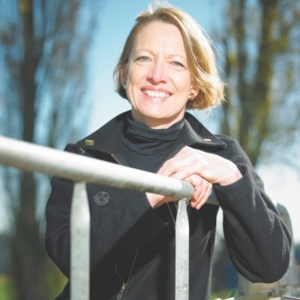The Agritech Exec Forum, a brainchild of University of Waikato’s management school, provided a one-day, case study-based programme in which participants were shown the outcomes of studies of their businesses during the summer holidays by Waikato students.
Agribusiness professor Jacqueline Rowarth, presenter at the forum, outlined progress so far.
“Over summer three students worked on different strategies on how New Zealand companies can go global; they looked at how companies can go beyond what Trade and Enterprise call the ‘beach, bach and BMW’ mentality of many companies.
“The students had been tasked to look at the theoretical models then work with their given companies published materials and press releases, and talk to chief executives and shareholders. They then compared the theoretical model with actual results. It appears that outcomes have been very predictable,” says Rowarth.
Rowarth has been thrilled at the response by the companies to the students. Most interesting are the co-operatives.
“We have been working with Tatua, Synlait, Ravensdown, and NZ Farming Systems Uruguay. Tatua noted that one of the highest priorities has been relationship building and this exactly corresponds with a paper published by NZTE in 2009 ‘Playing to Our Strengths: Creating Value for Kiwi Firms’ ”.
Rowarth says Kiwis are good at saying, ‘I’ve got something to sell, where can I sell it?’, rather than building relationships to help with the whole process – identifying real opportunities and capturing more of the value in the supply chain.
The NZTE report also highlights this issue stating that innovation, which Kiwis are good at, needs to be broken down into two sections: initiation and implementation. It is the implementation phase that often lets New Zealand businesses down when they go global.
A key message at the forum was the identification of how New Zealand can get small to medium enterprises to think a bit bigger and get offshore though this will be tempered, notes Rowarth, by Bill Falconer’s saying ‘Take your budget: halve your profit, double the time and treble the risk.’
“We are at the next phase of the study now,” says Rowarth. “The chief executives have been delightfully helpful and responsive to the students and understandably are very interested in this phase.”
The results from this work will be presented at the New Zealand Grassland Conference to be held in Tauranga in November 2013.

















